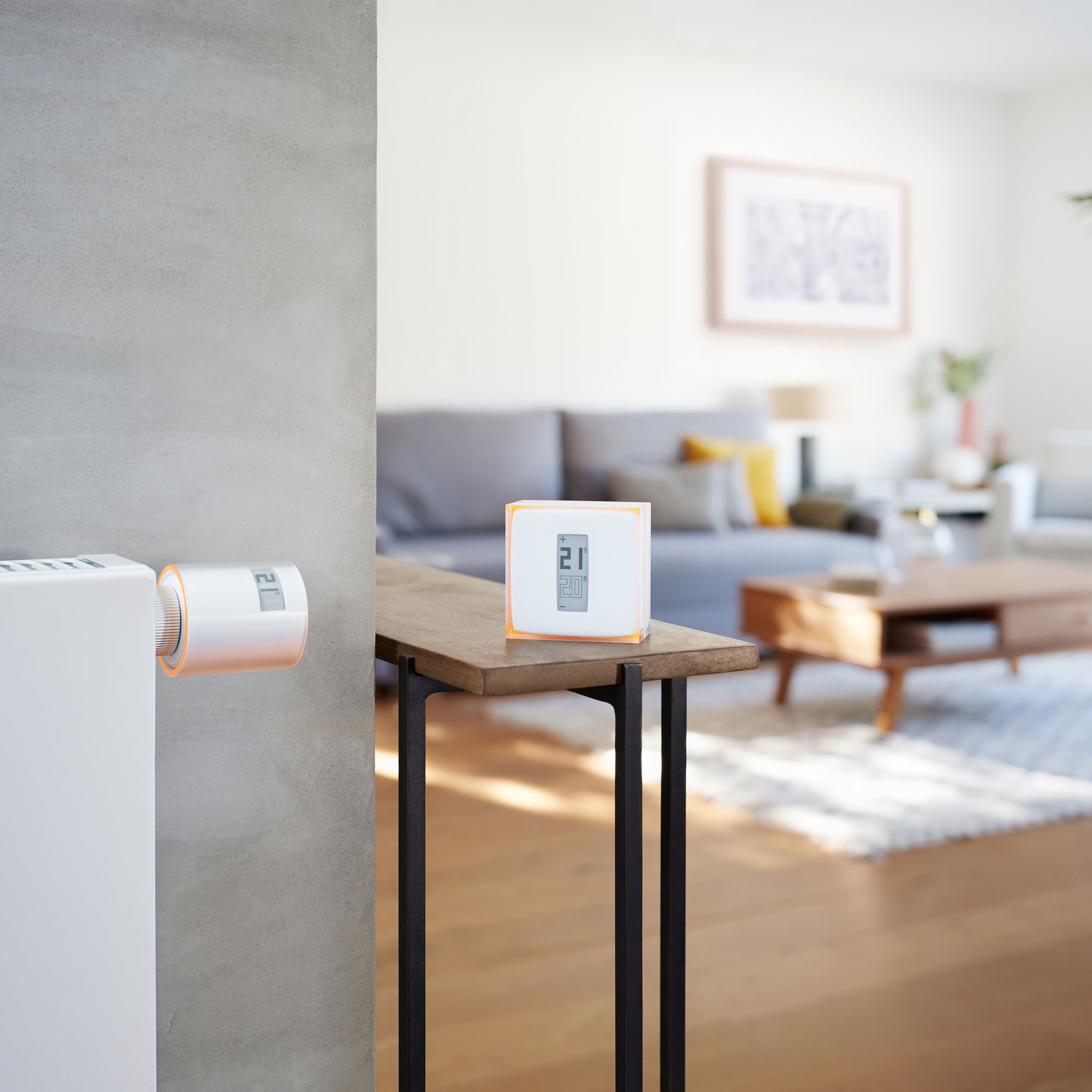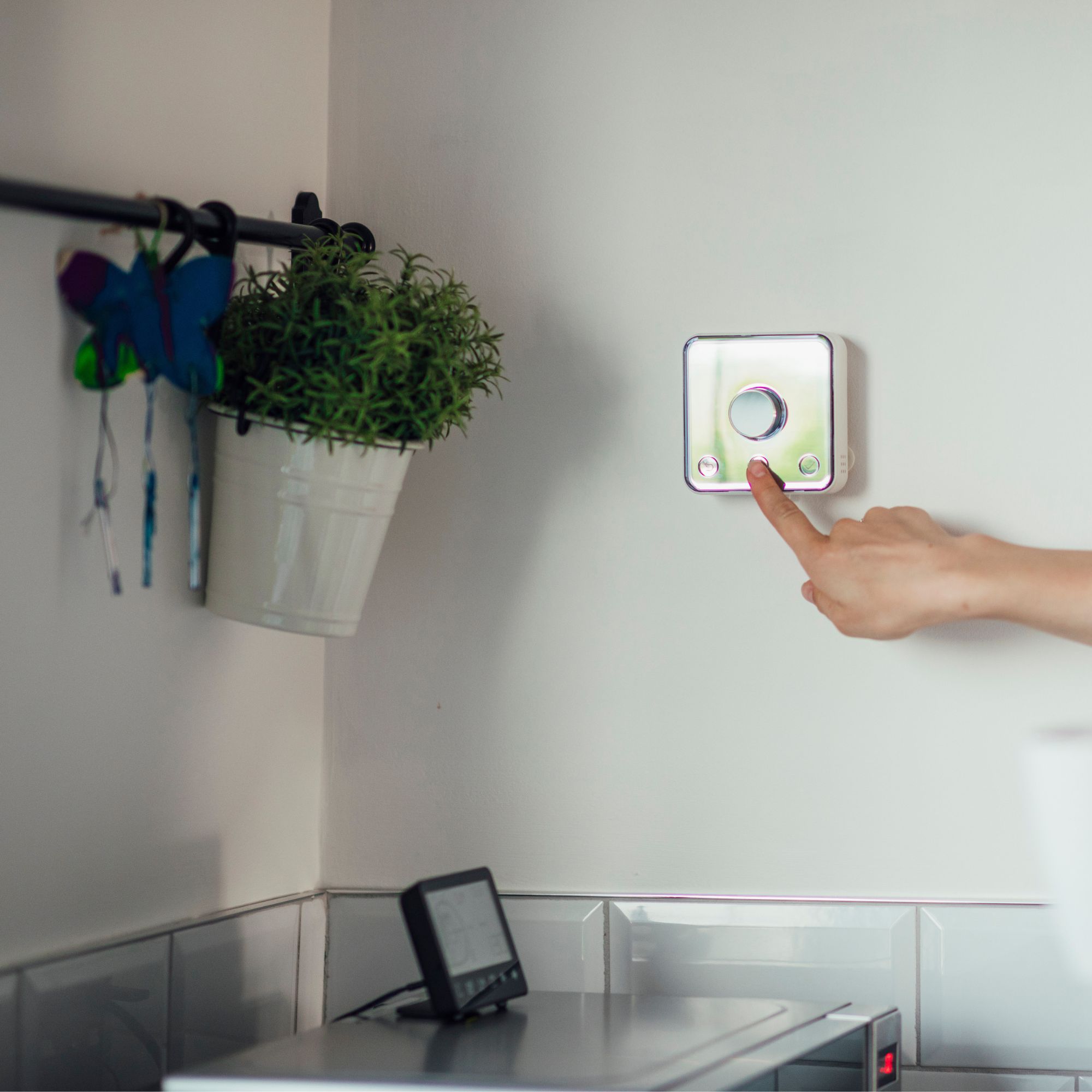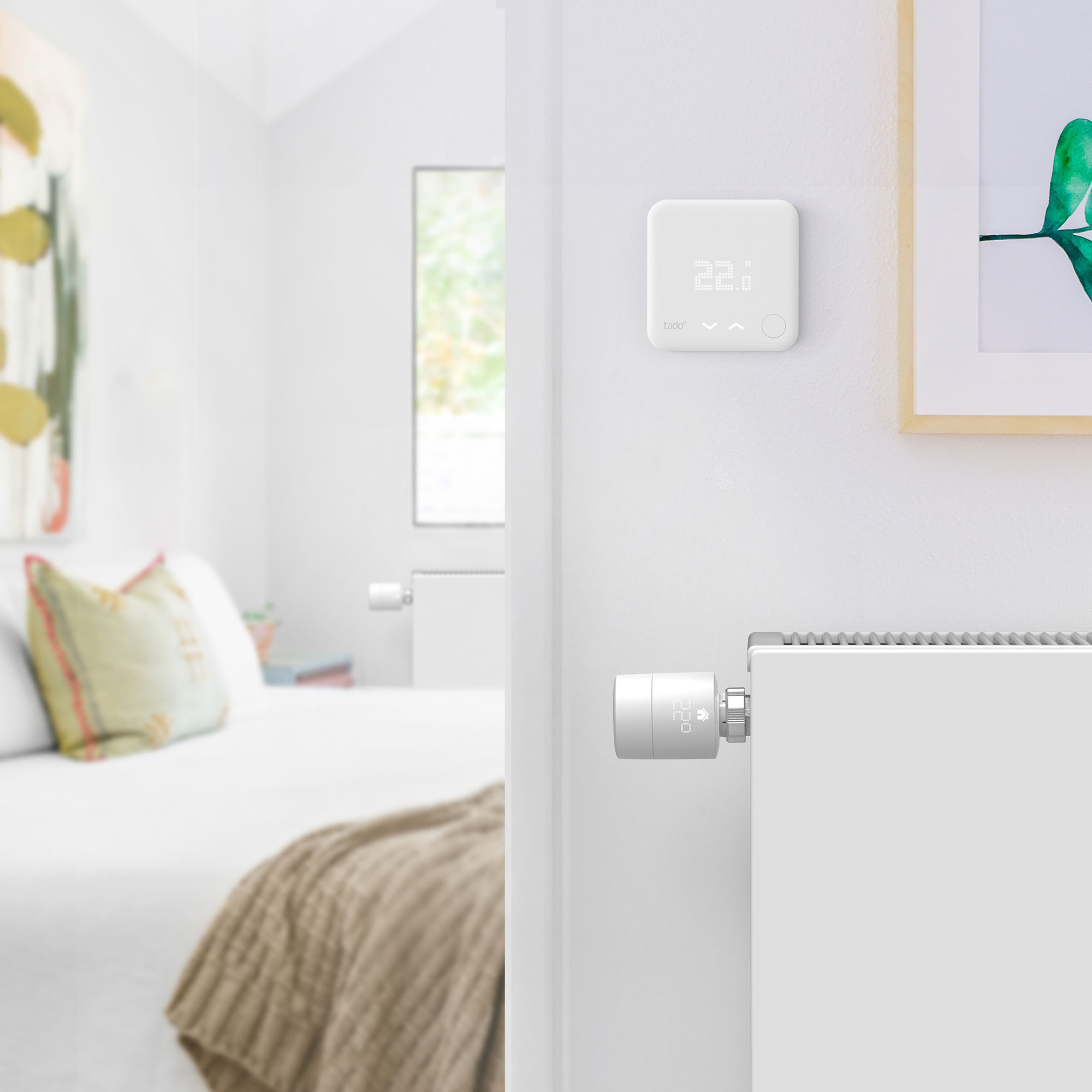
In a world where technology is constantly improving, smart tech is taking over many aspects of our lives. And if smart heating systems have crossed your path, you might wonder: Are smart heating systems worth it?
Yes, it’s easier than ever to have a smart home, and in recent years, more and more people have been turning to smart tech to control their heating systems. This smart heating technology can help you control and manage your boiler and radiators over the winter months, but the idea of installing a smart heating system can be daunting.
That’s why we’ve consulted with heating experts to understand whether smart heating systems are really worth it, and we’ve done a deep dive into the pros and cons you should consider before switching up your thermostat this winter.
Smart heating: The basics
In essence, smart heating bridges the gap between yourself and your boiler. It will connect to your heating system through Wi-Fi, allowing you to control your home’s temperature through your smartphone or tablet.
And while smart heating systems typically revolve around smart thermostats, it’s worth noting that these systems can also include smart radiator valves to control the temperature of your whole house and individual radiators.
Many modern smart heating systems offer much more than that, though. Nicholas Auckland, heating and energy expert at Trade Radiators, says, ‘They will learn about your home, your routines and your temperature preferences, and use this to set the optimal temperature of your home at the right times.

‘Depending on what type of smart heating system you get, some smart features could include anything from being able to detect open windows and doors to automatically turning off when there's no one in your home. These systems generally use sensors and algorithms, as well as physical input from users of the systems,' he adds.
On paper, smart heating systems sound like a dream for those who want to be able to control and monitor their energy usage. But as Candice Carmichael, Gas & Heating Engineer at TaskHer, explains, ‘Whether a smart heating system is worth it ultimately depends on your lifestyle and what you’re looking to get out of a smart heating system.’ Because of this, we’ve outlined the pros and cons of smart heating below.
The advantages of smart heating
1. It offers 24/7 control
There’s nothing worse than coming home to a freezing house after a long day. And while you can put most traditional thermostats on a timer to keep your house warm in winter, these older models don’t offer the same flexibility as smart heating systems.
After all, sometimes you need some flexibility during the English winters, as you never know whether you’ll get snow and cold temperatures or a rare sunny, warmer day.
Candice says, ‘A smart heating system will enable you and your family to control your heating remotely, from a mobile phone or remote device. It’s useful in the winter months if you want your home to be nice and warm when you get in from work; you can turn the heating on before you arrive home. You can also turn the heating off when you’re out if you ever accidentally leave it on.’
Plus, you don’t have to be at home to change your heating settings. All you need to do is grab your smart device and push a few buttons.

2. It manages energy usage
With the energy price cap changing every three months (and often for the worse), more people are trying to save energy at home. And often, understanding how much energy you use can help you reduce your usage.
While you can use a smart meter (installed by your energy supplier) for this task, most smart heating systems come with these as standard - allowing you to monitor your personal energy usage through the app.
Candice says, ‘Some benefits of a smart heating system are that you can see exactly how much energy your home is using, identify where energy is wasted so you can reduce consumption, and in turn, save on your bills and make your home more energy efficient.’
However, you don’t just have to rely on your own investigations to understand where you can save money on your energy bills. Smart heating systems learn more and more about your energy usage as time goes on.
They can monitor how much you use, track where you’re using more or less than average, and even recommend how you can make changes to save both energy and money in the future. So, you don’t technically have to do anything.

3. It can link to other smart systems
Smart technology can cover all aspects of our lives, allowing homeowners to control everything at the touch of a button. And one major advantage of smart heating systems is that they can link up to other smart systems you may already have in place.
For example, Google Nest can link your smart heating system, smart lighting system, and even your smart home security system together on one app. This way, you can focus on other energy-eating areas of your home to use them as efficiently as possible.
As long as you have Wi-Fi, access to a smart device, and choose systems that are compatible with each other (i.e., all from the same brand), you should be able to link up your whole house and control it from your phone.
Nicholas adds, ‘Many are compatible with smart home systems like Alexa, Google Home, or Apple HomeKit, which allows for voice control of your heating system as well as other functions.’ Just make sure you know these helpful voice commands to make the most of this.
The disadvantages of smart heating
1. Installation can be complex
Although smart heating systems are now more common and readily available than they were in the past, that doesn’t necessarily mean that you can buy a thermostat and start using it immediately.
If you have an old boiler and an old heating system, installing a smart heating system can be a hassle. This is echoed by Candice, who says, ‘It’s worth noting that installation can be complex as not all heating systems are compatible with smart heating technology, resulting in expensive installation.’
Thankfully, you don’t need to start from square one and rip out your old heating system completely. Candice explains, ‘Some thermostats are designed for DIY installation, others recommend a professional.’
‘You don't need a new boiler or radiators, but you will need to swap your regular thermostat for a smart one. For more control, you can upgrade your thermostatic radiator valves (TRVs) to smart versions too.’ Because of this, it’s best to thoroughly research the heating system you want to buy to understand how it will be installed.

2. It can be expensive
As with any smart system, you’ll need to spend some money to buy the thermostats, radiator valves, and any other accessories you want to accompany it. This can be expensive, especially if you have a large house and want to ensure every room is covered by the smart heating system.
Nicholas explains, ‘While they can offer long-term savings, the initial investment of installing a smart home heating system may be pretty high. The average cost in the UK can range from £150 to £300 for the device alone, excluding installation fees.’
With this in mind, you need to weigh up whether the price is worth it. Candice says, ‘If you’re looking to install a smart heating system just to save money, then it might not be worth the investment.’
‘Whilst smart heating systems offer greater control and transparency over the energy you use, you’re more likely to save money by reducing how much heat you use overall or by switching providers to find a better deal,’ she adds.
Of course, if your aim is to add a smart heating system to an already smart home for added convenience, the price may be worth it. But that’s something you need to decide for yourself.

3. It’s dependent on Wi-Fi
As with any smart device, it won’t work if there’s no internet connection. Of course, this doesn’t mean that your whole smart heating system will shut down if you have a power cut or connectivity issues, but it is something to consider if you’re wondering whether smart heating systems are worth it.
Nicholas says, ‘These systems rely on a stable internet connection to function correctly all the time. If your internet connection is unreliable or drops out frequently, then you might experience connectivity issues that affect the system's performance. This could be a particular problem in winter if there was an electricity outage.’
This can also be an issue if you live or frequently travel to rural areas where internet connectivity is poor. After all, it’s not worth paying a lot of money for a smart heating system if you don’t have a quality internet connection to go with it.
Final verdict: Are smart heating systems worth it?
Ultimately, only you can decide whether smart heating systems are worth it. These systems have pros and cons, but in an increasingly modern world, we can’t help but think that this is the way forward.
Nicholas echoes this, saying, ‘In my opinion, it all depends on yourself and your home, as well as your overall heating budget. If you seriously prioritise energy efficiency and are particularly interested in integrating some smart technology into your home, smart heating systems can be a worthwhile investment and will have many benefits down the line.’
But it’s also important to note the cons and understand your personal intentions when it comes to heating your home. If you don’t have any current problems with your heating system and feel as though your energy bills are acceptable, a smart heating system might not be worth it.
The best smart heating systems
This starter kit includes a smart thermostat alongside the hub and receiver. Once professionally installed, it will be able to regulate up to 6 zones of heating in your house.
This smart heating system is as smart as it gets, and it learns the temperatures that you like and creates a schedule for you. It will also connect to any other Nest products in your house, but it does require professional installation.
This set may be a little more expensive, but it also comes with three smart radiator valves to adjust different rooms accordingly. The auto-care function will also notify you of any possible heating problems.
FAQs
Is a smart thermostat worth it if you are always home?
Smart thermostats definitely have their plus points, but they’re largely targeted more towards people who regularly go in and out of their homes rather than those who are always home. After all, if you work from home you can control your thermostat yourself without having to spend extra on the smart additions.
However, that doesn’t mean those who are always home won’t benefit from smart thermostats. After installation, the smart technology can monitor your energy usage, control your heating, and offer guidance in terms of saving energy and money. So, this can still be helpful.
For elderly people or those unable to walk to their thermostat, having the ability to control the temperature of their home from their phones is a definite plus point.
Do you need a smart thermostat in every room?
No. To install a smart heating system in your house, you’ll just need one smart thermostat. This will be enough to control your boiler and your central heating as a whole.
But if you want to control the radiators in each room, you must install smart radiator valves in every room for this to work effectively.
So, what do you think? Are smart heating system worth it?







